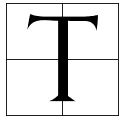 he tale of Atlantis has captivated the imagination of people for centuries. Described as a magnificent civilization submerged beneath the ocean, Atlantis continues to evoke wonder and speculation. This article delves into the history of Atlantis, exploring its origins, the accounts of ancient civilizations, and the enduring mystery that surrounds its existence.
he tale of Atlantis has captivated the imagination of people for centuries. Described as a magnificent civilization submerged beneath the ocean, Atlantis continues to evoke wonder and speculation. This article delves into the history of Atlantis, exploring its origins, the accounts of ancient civilizations, and the enduring mystery that surrounds its existence.
Ancient References and Origins
The earliest known reference to Atlantis comes from the ancient Greek philosopher Plato. In his dialogues “Timaeus” and “Critias,” Plato describes Atlantis as an advanced civilization that existed approximately 9,000 years before his time. According to Plato, Atlantis was a utopian society with a remarkable architecture, technological advancements, and a powerful naval fleet.

Scholars have debated whether Plato’s account of Atlantis was based on historical events or was purely fictional. Some argue that Plato used Atlantis as a metaphorical tool to convey his philosophical ideas, while others suggest that it could be inspired by real events and lost civilizations. The lack of concrete evidence has contributed to the enduring mystery and various interpretations of Atlantis.
Other Ancient Civilizations and Atlantis
Interestingly, references to a lost civilization with similarities to Atlantis can be found in the mythologies of other ancient civilizations. In ancient Egyptian texts, there are mentions of a land known as “Keftiu,” believed by some to be connected to Atlantis. Similarly, the Mayan civilization has legends of a powerful island nation that sank beneath the sea.

Numerous theories have emerged regarding the possible location of Atlantis. Some believe it was situated in the Mediterranean Sea, while others propose locations such as the Caribbean, the Azores, or even Antarctica. The search for Atlantis has prompted expeditions, investigations, and the exploration of various underwater sites, but no definitive evidence has been found.
Legendary Status and Modern Interpretations
The story of Atlantis has transcended its ancient origins and permeated popular culture. It has inspired countless works of literature, art, and film, fueling the imagination of writers, filmmakers, and artists. From Jules Verne’s “Twenty Thousand Leagues Under the Sea” to Disney’s animated film “Atlantis: The Lost Empire,” the allure of Atlantis continues to captivate modern audiences.

Beyond its mythical status, Atlantis holds symbolic significance in our collective consciousness. It represents the desire for a lost utopia, a cautionary tale of hubris and the consequences of societal decline. The legend of Atlantis serves as a reminder of the fragility of civilizations and the impermanence of human achievements.
Unraveling the Mystery
In recent years, scientists have employed advanced technologies to explore the world’s oceans and investigate underwater anomalies. Sonar imaging, satellite mapping, and deep-sea exploration have provided insights into submerged geological formations and potential archaeological sites. While some intriguing discoveries have been made, none definitively prove the existence of Atlantis.
Various theories and speculations have emerged to explain the mystery of Atlantis. Some propose natural catastrophes, such as earthquakes or tsunamis, that may have caused the island to sink. Others suggest that Atlantis was a highly advanced civilization that achieved technological feats beyond our current understanding. The search for answers continues, fueled by curiosity and the hope of unraveling the truth behind Atlantis.
Atlantis remains an enigma, shrouded in myth, legend, and speculation. Whether it was a figment of Plato’s imagination or a lost civilization waiting to be discovered, the story of Atlantis captures our fascination with the unknown and our yearning for ancient mysteries. As long as the allure of Atlantis persists, the quest to uncover its secrets will endure, driving explorers, researchers, and dreamers to dive deeper into the depths of history.
Avid Writer with invaluable knowledge of Humanity!
Upcoming historian with over 30 million views online.
“You make your own life.”





